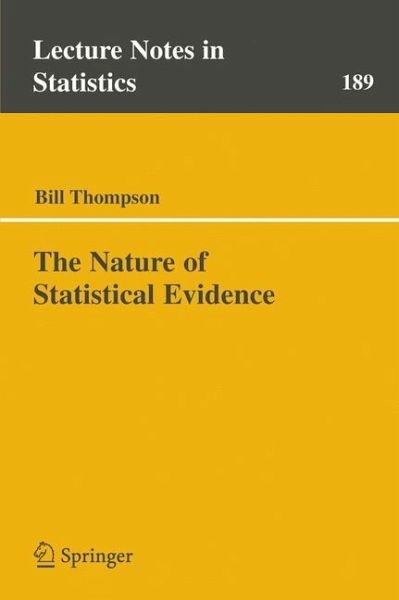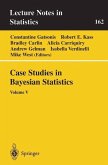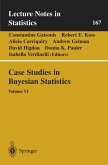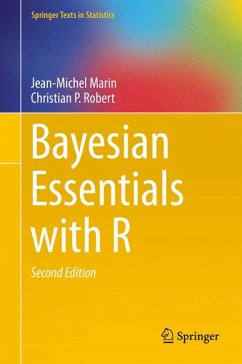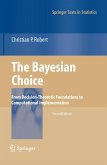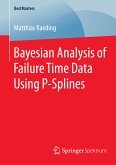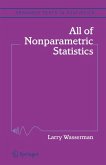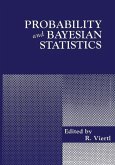The present volume begins the task of providing interpretations and explanations of several theories of statistical evidence. It should be relevant to anyone interested in the logic of experimental science. Have we achieved a true Foundation of Statistics? We have made the link with one widely accepted view of science and we have explained the senses in which Bayesian statistics and p-values allow us to draw conclusions.
Bill Thompson is Professor emeritus of Statistics at the University of Missouri-Columbia. He has had practical affiliations with the National Bureau of Standards, E.I. Dupont, the U.S. Army Air Defense Board, and Oak Ridge National Laboratories. He is a fellow of the American Statistical Association and has served as associate editor of the journal of that society. He has authored the book Applied Probability.
Dieser Download kann aus rechtlichen Gründen nur mit Rechnungsadresse in A, B, BG, CY, CZ, D, DK, EW, E, FIN, F, GR, HR, H, IRL, I, LT, L, LR, M, NL, PL, P, R, S, SLO, SK ausgeliefert werden.
"[This book is]... for anyone who lists "foundations of statistics" as an area of interesting, and it would make interesting reading for someone who wants to take some time to reflect on where the discipline stands." (Biometrics, 64, March 2008)
"This book seeks to answer the question: 'In what sense do statistical methods provide scientific evidence?' ... . The intended audience includes students, consultants, and researchers with a solid background in probability and mathematical statistics, experience using statistics in applied problems, and a willingness to question prevailing statistical methodology. ... Inquisitive statisticians may find this book an interesting read in which to put their theories and epistemology to the test. There is an appendix to help with the requisite logical reasoning." (Shaun S. Wulff, Journal of the American Statistical Association, Vol. 102 (480), 2007)
"This brief volume attempts an heroic tilt at the problem of identifying and elucidating the nexus between statistical and scientific pursuits. ... The breadth of the material covered is remarkable, considering the book's brevity; the book draws together an idiosyncratic collection of sources, ranging from Lehman and Kuhn to Persig and Ayer. ... Thompson does draw us through some interesting and challenging new ways of looking at existing concepts." (Andrew Robinson, Journal of Applied Statistics, Vol. 35 (3), 2008)
"Readership: Statisticians and other scientists interested in the foundations of statistical inference. This is a personal view of how statistical inference relates to scientific discovery. It seeks to link Bayesian statistics and p-values to 'one widely accepted view of science'. ... It is not too mathematical and does not require a deep prior grasp of the issues. ... The book is divided into three parts, the first setting the context, the second discussing interpretations of probability, and the thirdstatistical models for inference." (David J. Hand, International Statistical Review, Vol. 75 (2), 2007)
"The main purpose of this interesting book is to provide interpretations and explanations of different theories of statistical evidence. In particular, the methodologies based on the Bayesian approach and p-values are thoroughly examined. ... The book also contains an appendix on deductive logic, with a discussion on propositional calculus, conditional statements ... classical logic and many-valued logic." (Angelo Gilio, Mathematical Reviews, Issue 2008 h)
"The book analyses a set of well-known and related questions of any field of knowledge with respect to statistics. ... There are 14 brief chapters divided into three clusters ... . for statisticians interested in the wider context of their field, the book is highly recommended." (Götz Uebe, Advances in Statistical Analysis, Vol. 92 (3), 2008)
"This book presents a series of intellectual discussions concerning some of the most basic topics in statistics ... . The book is a well-researched and thoroughly professional approach to the various dilemmas faced by statisticians in interpreting data. The author's knowledge of the literature as it pertains to the various issues discussed in the book is excellent ... . The wealth of knowledge present in this 152-page book is remarkable; the book is a worthy of addition to any library of statistical literature." (Jeffrey E. Jarrett, Technometrics, Vol. 50 (3), August, 2008)

